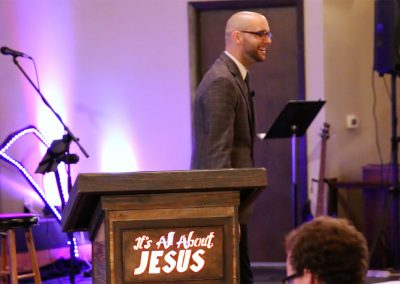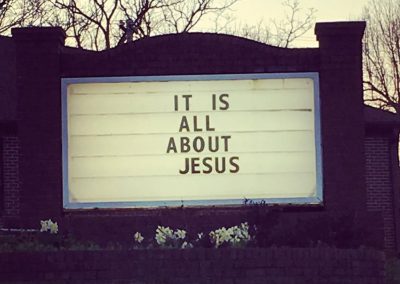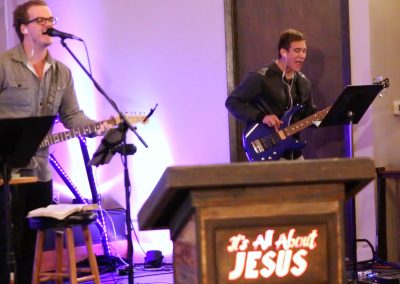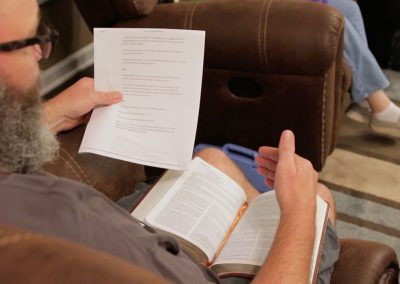Ecclesiastes: Learning to Live Life in Reverse | Ecclesiastes 1:1-18
“What is morally right and wrong?”
‘Why are we here and where are we going?’
“Where do we come from?”
These questions carry some of the most weighted subjects that human beings can contemplate.
Imagine if you were told you had an opportunity to learn from the wealthiest, wisest, most experienced person who ever lived. Would you take that opportunity? What questions would you ask?
Join us in Ecclesiastes 1:1-18 as we start our new series in this ancient book of wisdom and discover what God’s word has to say about all of these questions and more.
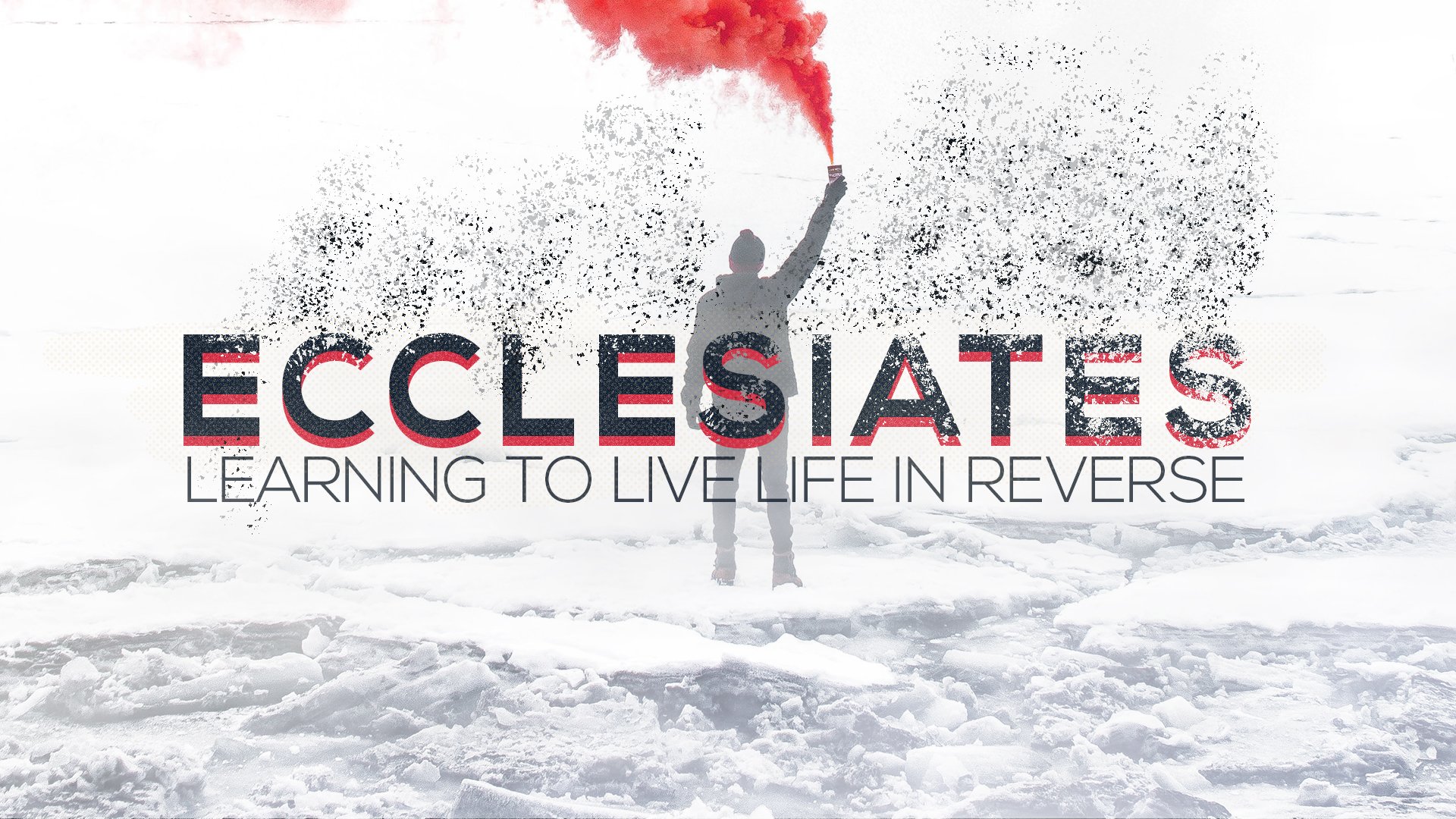
Date: February 10, 2018
Speaker: Jason Jordan
Series: Ecclesiastes
Watch the archived Facebook LIVE stream by clicking the button below!
Pastor’s Comment
Thank you so much for listening in here at West Side. We often say that we love the word of God because it points us to the son of God. We hope these messages encourage you and equip you to love Jesus more. We also want you to be apart of a local church, we believe these messages are only supplemental, being apart of a local church is essential. Blessings.
Sermon Notes
Ecclesiastes: Introduction
INTRO: Well today we being a new journey through an Old book of the Bible: Ecclesiastes. I think the best way for us to begin this journey is to take a look at one of the most famous pieces of art ever created, The Thinker (PIC) This famous piece of art was created by the French artist Francis Rodin. It was suppose to be a small piece to a larger piece. Rodin set out to sculpt a scene from Dantes famous “Comedy” but as he began on just this piece it quickly became it’s own. It is currently at the Univserity of Louisville in Kentucky and was unveiled at the STL World fair in 1904. There is a question that always comes when looking at this piece: “What is the thinker thinking about?” Many speculations.
APP> This reason I show you that and tell you about that is this: If I were to show you an image that best summarized this book, it would be that. For two: reasons. 1) That is the position that the writer of the book is taking, one of contemplation 2) Which in turn means that’s the posture that we should have as well. Here is what is so great about that. If you are a Christian or not, if you are someone who believes in God or not, ever human being is faced with the same questions in life. They are referred to as the “Big Four”
-
-
- Where do we come from? (Origin)
- Why are we here? (Meaning)
- What’s right and what’s wrong? (Morality)
- Where are we going? (Destiny)
-
CONTEXT> No matter who you are or what you believe, you must answer these questions. As Christians we believe that God’s word is what shapes our worldview. So how does ECC fit into this? ECC is a book that relentless challenges whatever worldview you have, even if you are a Christian. It forces you to contemplate the hard questions and challenges your answers. In the book 31x questions are asked.
-
-
-
- Author: Solomon (1 Kings 3) 1:1, 1:12, 1:16
- Date: 10th Century B.C.
- Genre: Wisdom Literature Ancient Wisdom Writings aren’t like what we are use to : Linear vs Cyclical (PIC)
- Purpose: To confront reality in light of eternity.
-
-
- Under the Sun. v3
-
-
- “What does a man gain by all the toil at which he toils under the sun?” This phrase is used 29x in this book. There is a bit of confusion as to what this means. 1) Many people say that it refers to simply, “life on earth”. Which would refer to the day to day grind of earthly life. Basically physical life.I think the phrase by itself works that way but it’s not used in that context.
- The second view of this phrase expands it a little more. Yes I think Solomon is saying that we as humans only have one view of life which is “physical life” as we know it. But I think Solomon is creating a divide with this phrase.. and we can see it in v9 “there is nothing new under the sun…” APP> Think about it, what can we actually make that is new? We can only take raw materials that have already existed and create something. APP> In the Rabbic understand of this phrase, Rabbis are taught to ask questions… So the question then is asked.. “What is OVER the sun?” That is where God lives, and he is the only one who actually can make new things… The Sun in Scripture is also a marker for time..
-
APP> So what does this phrase mean for us? What is the wise man teaching us? APP> There is no gain apart from God. Solomon is teaching us that if you are trying to find meaning “Under the Sun” and not in the God who made it, it’s pointless.
We try to gain from:
-
-
- Knowledge
- Wealth
- Power
- Religion
- Friends
- Work
- Pleasure
-
APP> He is saying if you are trying to find meaning, purpose in gain in these things.. these creations apart from their creator.. you wont find it.
But why?
2) Vanity v2
-
-
-
- “Vanity of vanities….” This is the central thesis of the book, this is Solomon’s main argument..This word is used over 30x times in the book and understanding this word means and why he uses it is the key to the book. There is a problem though… it’s an extremely difficult word to understand.
- Some translations translate it “meaningless” which isn’t a good translation because he isn’t really saying that life is “meaningless” per se. If you notice a foot note in your bible that says, “Vapor” or “breath” that’s a closer translation.
-
-
*ILL> Maybe this will help. This week we went to the circus. Maybe its because I am older now but I was amazed at how hard they are feeling stuff, all the time! One of the things that the guys are walking around selling is, Cotton Candy. $5 for…. sugared air. That’s what it is right? I mean.. you are tasting something, there is a substance there but when you put it into your mouth what happens? It’s gone!
APP> That is what Solomon is saying. He is saying that your Your Life is temporary. All that life has to offer you is temporary. Sure it looks good, maybe even has a brief taste.. but then it’s gone. That fast.
APP> So then what is the answer? What’s Solomons advice for us today? It’s really positive…. Death.
-
-
-
- “ A generation goes, and a generation comes, but the earth remains forever.” 1:4
- Solomon teaches us that in my old age… all that I have seen and done there is one thing… one thing that everything arrives at…. Death.
-
-
*ILL> We don’t like talking about death do we? Why? Because we are like And Grace at Disney World… she is pretending…. and so are you. Pretending and acting like you wont die.
-
-
- “The end of the matter; all has been heard. Fear God and keep his commandments, for this is the whole duty of man. For God will bring every deed into judgment, with every secret thing, whether good or evil.” Ecclesiastes 12:13-14
-
Big Idea > To understand life, start with death. Live your life in reverse.
CLOSE> We are going to do two things today to help you with that.
- When you leave today there is going to be cotton candy for you in the lobby. Symbolizing your life.
- Write out your own Eulogy. What will be said of you? What will matter. And start living that in reverse.
Many years later there would be another wise man who would come. Another “Son of David…”
“Jesus said to her, “I am the resurrection and the life. Whoever believes in me, though he die, yet shall he live, 26 and everyone who lives and believes in me shall never die. Do you believe this?” John 11


